
Scientists build brain-computer interface that connects via the ear canal
Researchers in China have invented a device that can connect people’s brains to a computer via their inner ear. The SprialE brain-computer interface (BCI), developed by a team from Tsinghua University in Beijing, uses a flexible in-ear material to establish a digital connection to the brain. It follows recent advances into BCI technology, which has seen company’s like Elon Musk’s Neuralink test brain chips capable of reading the minds of pigs and monkeys. Ultimately, the technology could offer “full-bandwidth data streaming” to the brain. Unlike Neuralink’s device, the latest invention does not require surgery or other microneedle-based invasive methods to install, which the scientists claim make it suitable for daily use. Current methods of connecting BCIs via the ear involve support systems like earplugs or 3D printed attachments, however the spiral design means it can be slid in and out without blocking the wearer’s hearing. “The hollowness of SpiralE ensures that all subjects could hear audio stimuli in the outside world in real time,” the researchers noted, adding that its unique structure demonstrates that “natural and discreet wearable electronics can be integrated into real-life applications.” The research was detailed in a study, titled ‘Conformal in-ear bioelectronics for visual and auditory brain-computer interfaces’, was published in the scientific journal Nature Communications. The technology could allow applications like translating thoughts into text, control digital objects with thought alone, or even augmenting human memory. A 2019 report from the Royal Society said the technology had the potential to “transform medicine and fundamentally change how we interact with technology and each other”, however it warned that BCIs raise critical ethical concerns relating to privacy and human rights. “Neural and brain-computer interfaces may challenge the very essence of what it is to be human,” the report stated. “Working out how, and even if we want to use them requires an open and inclusive debate involving many voices and all sectors of society.” Read More What is superintelligence? How AI could wipe out humanity – and why the boss of ChatGPT is doomsday prepping A mysterious source has been sending radio signals to Earth from space for decades Beats launches updated version of Studio Pro over-ear headphones How Mark Zuckerberg’s new ChatGPT rival could lead to ‘obscene’ AI
2023-07-20 01:24

SEC’s Regulatory Net Now Covers $115 Billion of Crypto After Lawsuit Against Binance
The list of digital tokens deemed as unregistered securities by the Securities and Exchange Commission now spans over
2023-06-06 10:15
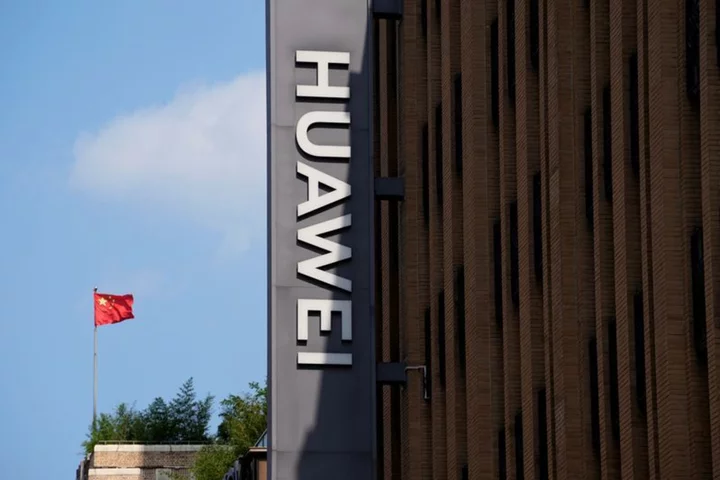
House Republican lawmakers urge US crackdown on Huawei, SMIC
By David Shepardson WASHINGTON (Reuters) -A group of senior U.S. House Republicans on Thursday urged the Biden administration to crack
2023-09-15 07:49

‘Hostile states using organised crime gangs as proxies in the UK’
Hostile states are using organised crime gangs to carry out illegal activity in the UK, the head of the National Crime Agency has warned. NCA director-general Graeme Biggar highlighted “the emerging links between serious and organised crime and hostile states” in a speech outlining the agency’s annual assessment of crime threats to Britain. Speaking in Westminster, central London, on Monday, he said: “North Korea has for some time used cybercrime to steal funds and more recently cryptocurrency. “The Russian state has long tolerated and occasionally tasked the cybercrime groups on its territory, and had links with its oligarchs and their enablers. “And over the last year we have seen hostile states beginning to use organised crime groups – not always of the same nationality – as proxies. “It is a development we and our colleagues in MI5 and CT (counter-terrorism) policing are watching closely.” Mr Biggar said the biggest group of offenders in the UK is those who pose a sexual threat to children, estimated to be between 680,000 and 830,000 people – around 10 times the prison population. He warned that the availability of abuse images online has a radicalising effect by normalising paedophiles’ behaviour, and that viewing images, whether real or AI-generated, increases the risk of someone going on to abuse a child themselves. There are around 59,000 people involved in serious organised crime in the UK, with around £12 billion generated by criminal activities each year, and around £100 billion of dirty cash from across the globe laundered through the UK. Key threats to the UK include: – Criminals exploiting migrants travelling to the UK in small boats. The number of arrivals doubled to more than 45,000 in 2022, with gangs using “bigger, flimsier, single-use boats” and packing more people on to each craft, Mr Biggar said. – Illegal drug use that fuels a raft of other crimes including violence, theft, use of guns and modern slavery. Nearly 120 tonnes of cocaine and 40 tonnes of heroin are consumed in the UK every year, and NCA analysis of waste water suggests cocaine use is increasing by 25% in some areas. The agency wants to stop the use of synthetic opioids like fentanyl getting a hold here as they have done in the US. – Online fraud, which accounts for more than 40% of all crime. Mr Biggar said: “We assess that 75% of fraud is partially or fully committed from overseas. Generative AI is also being used to make frauds more believable, through the use of ever better deep fake videos and Chat GPT to write more compelling phishing emails.” Mr Biggar said developments in technology such as increased use of end-to-end encryption are making the agency’s work harder. He finished his speech by saying: “Law enforcement, including the NCA, needs to do more to be at the leading edge of new technology: this will require collective vision and sustained investment. “And, secondly, we need more effective strategic partnership from technology companies. “This is about responsible behaviour about designing public safety into their products alongside privacy, so that we all reap the benefits from technology, rather than suffering their consequences.” Read More Charity boss speaks out over ‘traumatic’ encounter with royal aide Ukraine war’s heaviest fight rages in east - follow live Kim Kardashian, Rylan Clark and Dalai Lama among those joining new app Threads Mastercard helping banks predict scams before money leaves customers’ accounts Art historian helps build new Assassin’s Creed game after son’s suggestion
2023-07-17 19:52

Surprise discovery shows major feature on Jupiter that experts had previously missed
Despite being by far the largest planet in the solar system, experts are still making surprise discoveries about Jupiter. The planet is only beaten in size by the Sun and as technology has evolved, scientists have sent multiple probes to investigate Jupiter. Despite all the scientific work that has gone into investigating the stripes and swirls that give Jupiters its well-known appearance, experts have only just discovered the existence of a high-speed jetstream above the clouds around the planet’s equator. The jetstream is a whopping 3,000 miles wide and was discovered thanks to the infrared data gathered by the James Webb Space Telescope (JWST) currently orbiting the Sun. Its discovery is giving experts an insight into how the planet’s atmosphere works, as well as its ill-understood weather phenomena. Ricardo Hueso from the University of the Basque Country in Spain is the lead author of the study, published in Nature Astronomy and explained: “This is something that totally surprised us.” He added: “What we have always seen as blurred hazes in Jupiter’s atmosphere now appear as crisp features that we can track along with the planet’s fast rotation.” Scientists have long been aware of light and dark clouds that are known as zones and belts that travel around the planet in different directions and at differing altitudes, but how this occurs has left them baffled. Analysis of the data collected by the JWST revealed the jetstream that was previously only just visible but very hazy. Data confirmed that it sits around 25 miles above the clouds and travels around Jupiter’s equator at around 515 kilometres per hour (320 mph). The researchers compared their data with that collected from the Hubble’s observations of the lower cloud levels and concluded that the jetstream may form part of a weather pattern. Planetary scientist Leigh Fletcher from the University of Leicester, explained: “Jupiter has a complicated but repeatable pattern of winds and temperatures in its equatorial stratosphere, high above the winds in the clouds and hazes measured at these wavelengths.” He added: “If the strength of this new jet is connected to this oscillating stratospheric pattern, we might expect the jet to vary considerably over the next two to four years – it'll be really exciting to test this theory in the years to come.” Sign up to our free Indy100 weekly newsletter How to join the indy100's free WhatsApp channel Have your say in our news democracy. Click the upvote icon at the top of the page to help raise this article through the indy100 rankings.
2023-10-24 19:16

Dr Disrespect: Popular streamer takes a jibe at Elon Musk after Twitter CEO announcement
Dr Disrespect teases Elon Musk in his recent tweet
2023-05-14 15:16

Twitch sensation Kai Cenat reveals captivating flirt formula in viral video, fans say 'love his energy’
In a captivating viral video, Twitch sensation Kai Cenat unveils his irresistible flirt formula, leaving fans impressed with his infectious energy
2023-07-24 17:48

Several stars at the Women's World Cup honed their skills with US collegiate teams
Christine Sinclair
2023-07-28 15:21

Forecasting, Monitoring and KI – Swarm Intelligence for the Energy Transition at EM-Power Europe
MUNICH & PFORZHEIM, Germany--(BUSINESS WIRE)--Jun 1, 2023--
2023-06-01 17:59
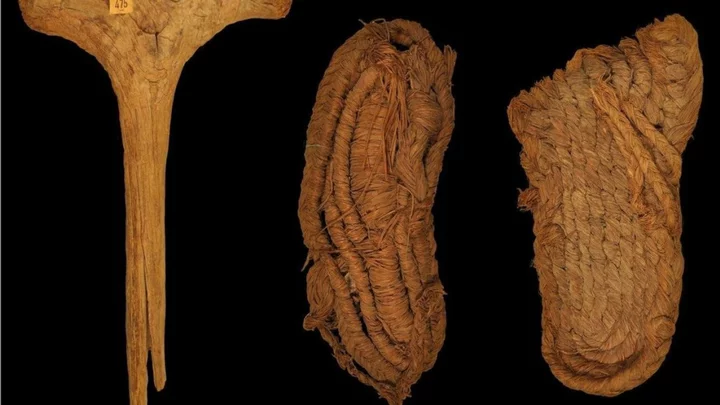
Prehistoric footwear dating back 6,200 years discovered in a Spanish cave
A pair of shoes thought to be the oldest ever found in Europe are now estimated to be even older than scientists had previously thought. About 20 pairs of sandals found in southern Spain are at least 6,200 years old, while other woven objects found in the cave date back 9,500 years, according to a new study. The scientists used carbon-dating on 76 objects found in the Cueva de los Murciélagos, Albuñol, near Granada, which were originally discovered by miners in the 19th century. The objects are particularly valuable to science because they represent the first direct evidence of certain hunter-gatherer skills, such as weaving, in southern Europe. They are made of wood, reed and esparto grass. The shoes measured about eight inches in length. The study was published in the journal Science Advances by a team from the Universidad de Alcalá (UAH) and the Universitat Autònoma de Barcelona (UAB). Francisco Martínez Sevilla, a researcher at the Prehistory Department of UAH, said: “These are the earliest and widest-ranging assemblage of prehistoric footwear, both in the Iberian Peninsula and in Europe, unparalleled at other latitudes. “The new dating of the esparto baskets from the Cueva de los Murciélagos of Albuñol opens a window of opportunity to understanding the last hunter-gatherer societies of the early Holocene. “The quality and technological complexity of the basketry makes us question the simplistic assumptions we have about human communities prior to the arrival of agriculture in Southern Europe.” He said the project placed the cave as “a unique site in Europe to study the organic materials of prehistoric populations”. Cueva de los Murciélagos, or “Cave of the Bats,” is located on the coast of Granada, to the south of the Sierra Nevada. The finds are thought to have been so well-preserved because of low humidity levels in the area. Study co-author María Herrero Otal added: “The esparto grass objects from Cueva de los Murciélagos are the oldest and best-preserved set of plant fibre materials in Southern Europe so far known. “The technological diversity and the treatment of the raw material documented demonstrates the ability of prehistoric communities to master this type of craftsmanship, at least since 9,500 years ago, in the Mesolithic period. “Only one type of technique related to hunter-gatherers has been identified, while the typological, technological and treatment range of esparto grass was extended during the Neolithic from 7,200 to 6,200 years before the present.” Sign up to our free Indy100 weekly newsletter Have your say in our news democracy. Click the upvote icon at the top of the page to help raise this article through the indy100 rankings.
2023-10-09 17:49

SpaceX abandons YouTube for live streams of launches in favour of X/Twitter
Elon Musk’s SpaceX appears to have ditched YouTube for hosting live streams of its rocket launches in favour of the tech billionaire’s own digital media platform X. The latest SpaceX launch, which saw the private space firm break the record for the most number of launches in a single year, was not broadcast on YouTube over the weekend, despite the two previous launches receiving more than 100,000 views on the Google-owned platform. Instead it appeared exclusively on X, formerly known as Twitter, where it received just over 200,000 views. A clip of the liftoff that appeared shortly after garnered more than 4.3 million views. Coverage of SpaceX’s recent Crew-6 splashdown appeared on YouTube, though only through Nasa’s official channel due to the US space agency’s involvement in the mission. It had initially been scheduled to also stream on SpaceX’s official YouTube page, however the page was quietly removed in the build up to the event. SpaceX has around 6.5 million subscribers on YouTube but more than 31 million followers on X. It is not clear whether this is a permanent transition to host SpaceX videos exclusively on platforms owned by Mr Musk, or if content will return to YouTube in the future. The Independent has reached out to SpaceX for comment. Mr Musk has previously abandoned other social media platforms, deleting the official Facebook pages of both SpaceX and Tesla in 2018 during the #deletefacebook movement that arose in the wake of the Cambridge Analytica scandal. “Literally never seen it even once,” he wrote on Twitter at the time. “Will be gone soon.” Both pages had more than 2.5 million followers before they were taken down. The Musk-led companies continue to have a presence on Instagram, which is also owned by Meta and run by Facebook boss Mark Zuckerberg. Read More SpaceX smashes rocket launch record as Musk eyes historic Starship mission
2023-09-05 19:20
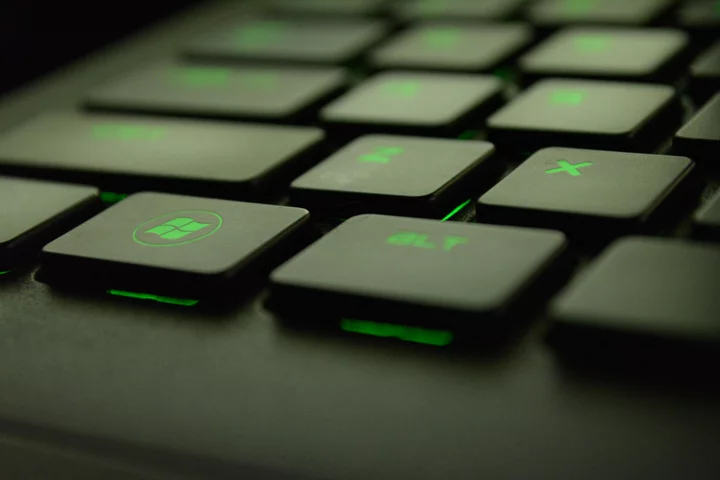
Unblock Pornhub with a subscription to this free VPN
TL;DR: ProtonVPN's free version provides access to 24 servers in three countries, strong connection speeds,
2023-05-16 12:23
You Might Like...
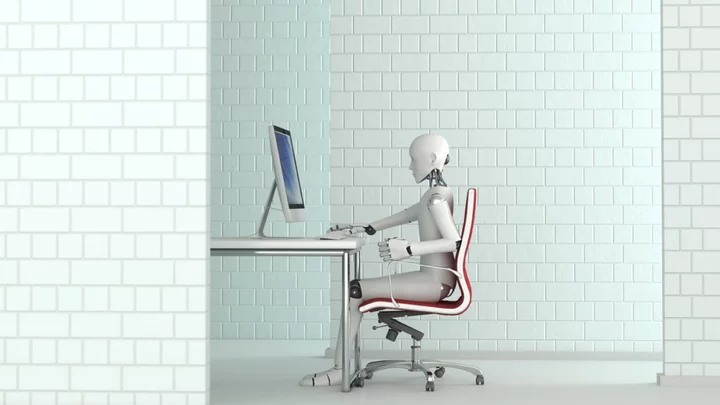
Almost Half of Small Business Owners Plan to Cut Hiring Because of AI

Internet tears up as beautiful photos of Madison Mogen's pal honoring her on graduation day surface
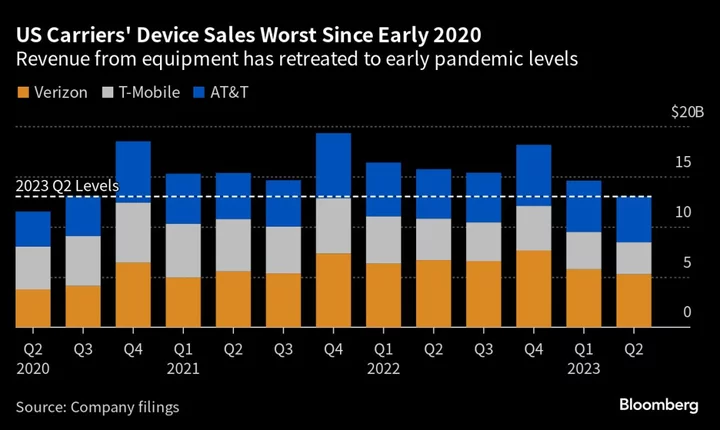
Wireless Carriers Lose Billions as Smartphone Demand Slows
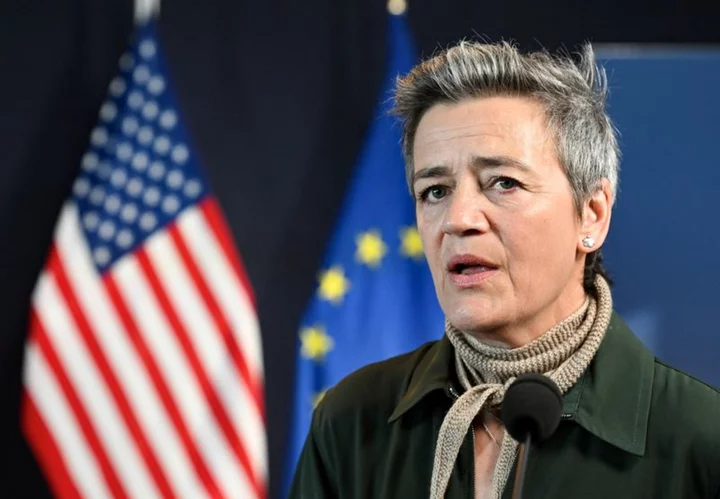
EU tech chief calls for voluntary AI code of conduct within months
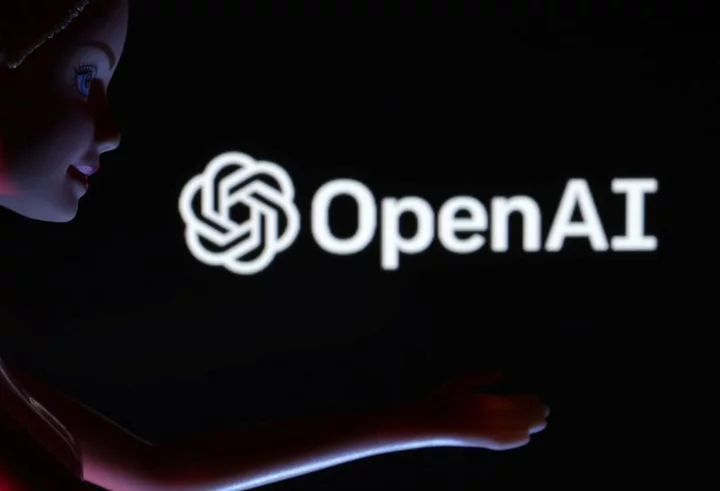
Associated Press, OpenAI partner to explore generative AI use in news
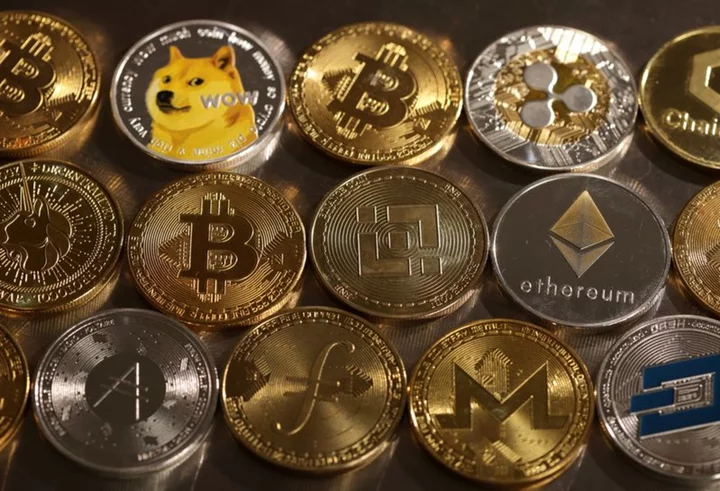
Cryptoverse: Stablecoins sag in the dog days of summer

Apex Legends x Post Malone Event End Date Countdown

Amouranth: Lil Pump DMs ASMR queen to ask if he can manage her OnlyFans account
